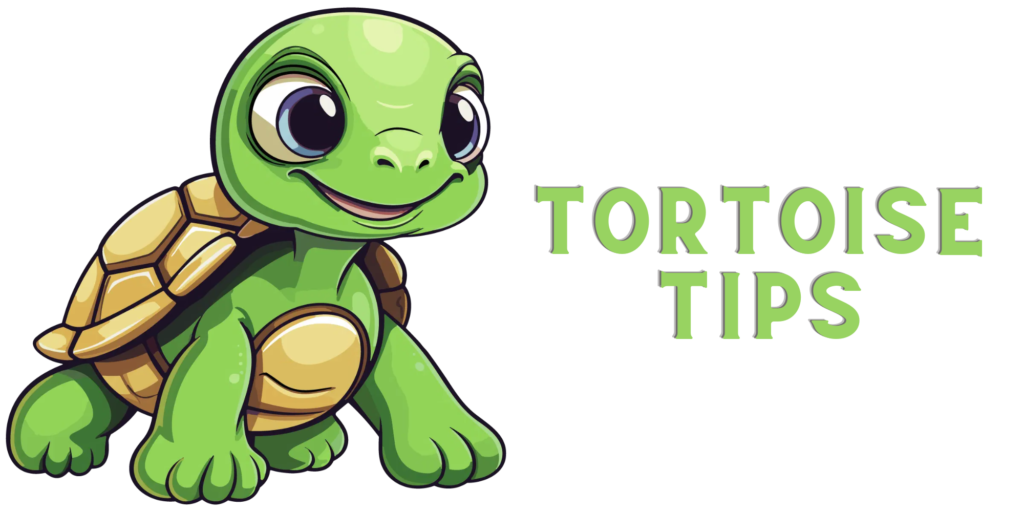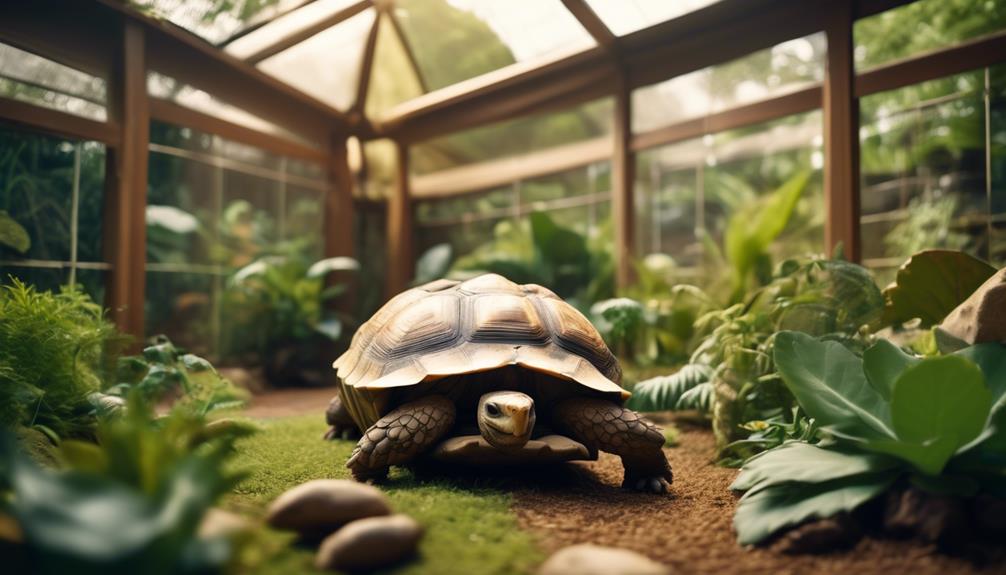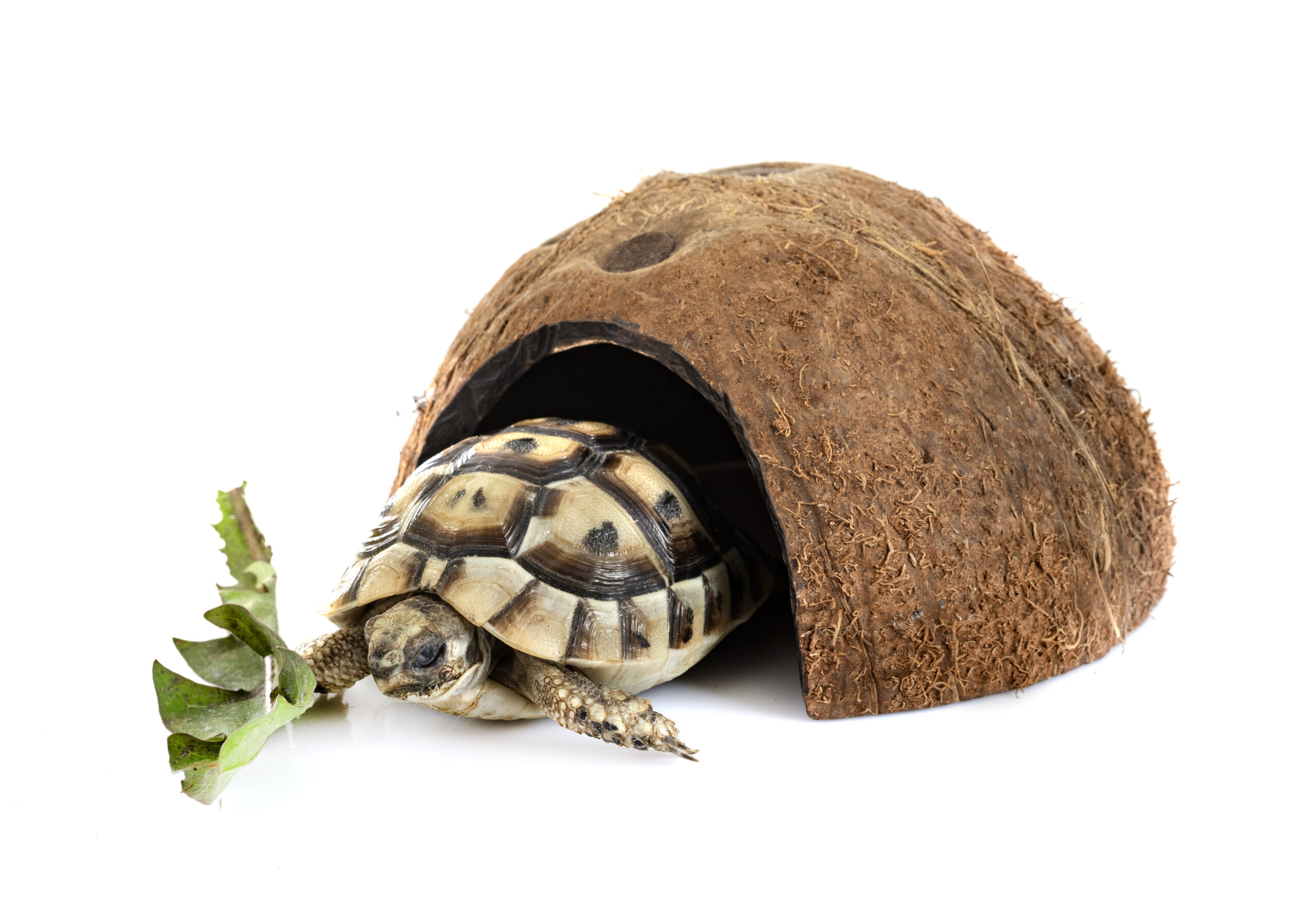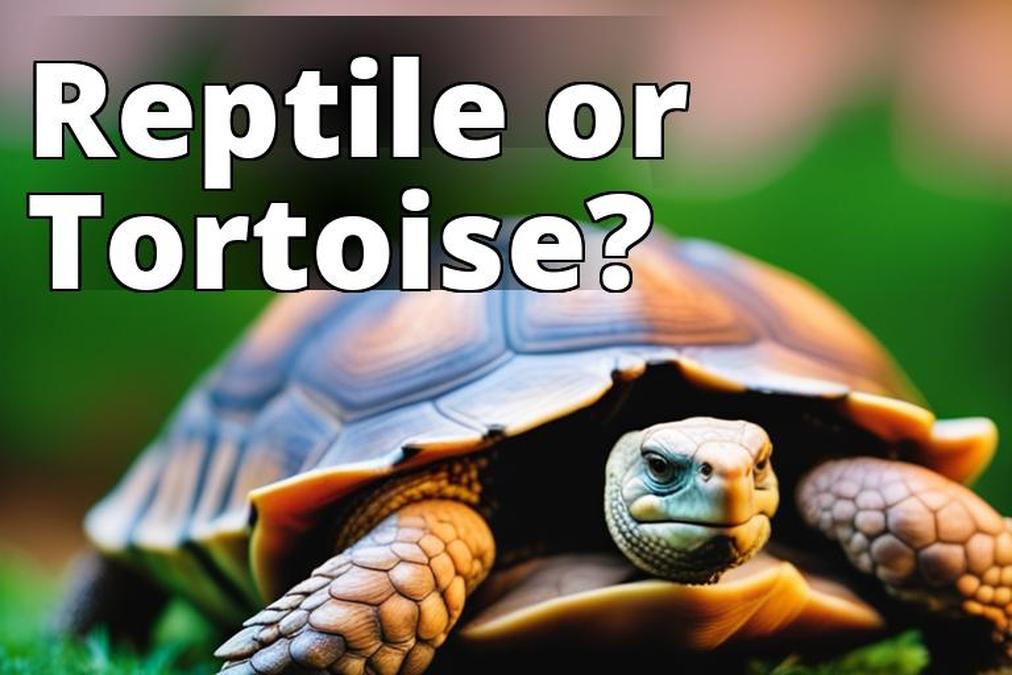Do you want to keep your tortoise healthy and strong? Well, you’re in luck! In this article, we’ll explore what a tortoise can eat to ensure its well-being. By providing the right dietary needs, such as calcium-rich foods and supplements like Repti-cal, you can help support their digestion and maintain sturdy shells. We’ll also discuss the importance of variety in their diet, avoiding harmful plants, consulting with a vet for specific requirements, and ensuring access to fresh drinking water. So let’s dive in and learn how to nourish your beloved tortoise!
Key Takeaways
- Calcium is essential for tortoises’ digestion and shell health.
- Cuttlebone and calcium powders are good sources of calcium for tortoises.
- Feeding frequency and amount vary depending on the tortoise’s age and nutritional needs.
- Offer a variety of safe leaves and flowers to provide a balanced diet for tortoises.
What to Feed Tortoises
You should provide a balanced diet for your tortoise by offering a variety of foods that are suitable for their specific needs. When it comes to the tortoise diet, it’s important to know what do tortoises eat and what can tortoises eat. In the wild, tortoises have a diverse diet consisting of various plants and leaves. To replicate this in captivity, you can feed your tortoise a combination of dark leafy greens such as kale, spinach, and dandelion greens. You can also include other vegetables like carrots, bell peppers, and squash. Additionally, providing fruits such as strawberries or melon in moderation can be a tasty treat for your tortoise.
It is essential to avoid feeding them foods that are harmful or toxic to their health. This includes foods high in phosphorus or oxalic acid, such as rhubarb leaves or certain types of beans. It’s always best to consult with a vet or do thorough research on the specific dietary requirements of your particular species of tortoise.
Remember to offer fresh water at all times for hydration purposes. Providing a balanced and varied diet will help ensure that your tortoise receives the necessary nutrients they need to thrive in captivity.
Different Dietary Needs
Different tortoise species have distinct dietary preferences and requirements based on their natural habitats. It is important to understand what a tortoise can eat in order to provide them with the best foods for their health. Tortoises eat a variety of plant-based foods, including leafy greens, fruits, and vegetables. However, not all types of plants are suitable for a tortoise’s diet. Before feeding your tortoise any new food, it is important to research if it is safe for them to consume. Some common foods that tortoises can eat include dandelion greens, kale, collard greens, bell peppers, strawberries, and melons. These foods provide essential nutrients such as vitamins and minerals that are important for the overall well-being of the tortoise. Additionally, it is important to ensure that the tortoise has access to clean drinking water at all times. Feeding a tortoise requires careful consideration of their specific dietary needs and providing a balanced diet that mimics their natural habitat as closely as possible.
Safe and Suitable Foods
Before feeding any new food to your pet tortoise, it’s important to research if it is safe and suitable for their diet. Tortoises have specific dietary needs that should be met to ensure their health and well-being. Here are some key points to consider when feeding your tortoise:
- What do pet tortoises eat: Tortoises are mainly herbivores, meaning they primarily eat plants and vegetables. They enjoy a variety of greens, such as dandelion leaves, collard greens, and kale.
- Food for tortoise at home: You can provide a balanced diet for your tortoise by offering a mix of leafy greens, vegetables like carrots and bell peppers (in moderation), and even some fruits as occasional treats.
- Feeding tortoise: It’s best to feed your tortoise small meals throughout the day rather than one large meal. This allows them to graze naturally and ensures they get the nutrients they need.
- What foods can tortoises eat: Tortoises can eat a wide range of vegetables, including broccoli, cauliflower, peas (in moderation), and even some flowers like hibiscus or nasturtiums.
- What veg can tortoises eat: Some safe vegetable options for tortoises include spinach, Swiss chard, zucchini, squash, and pumpkin.
Remember that each species of tortoise may have slightly different dietary preferences or restrictions. It’s always a good idea to consult with a veterinarian who specializes in reptile care to ensure you are providing the best possible diet for your pet.
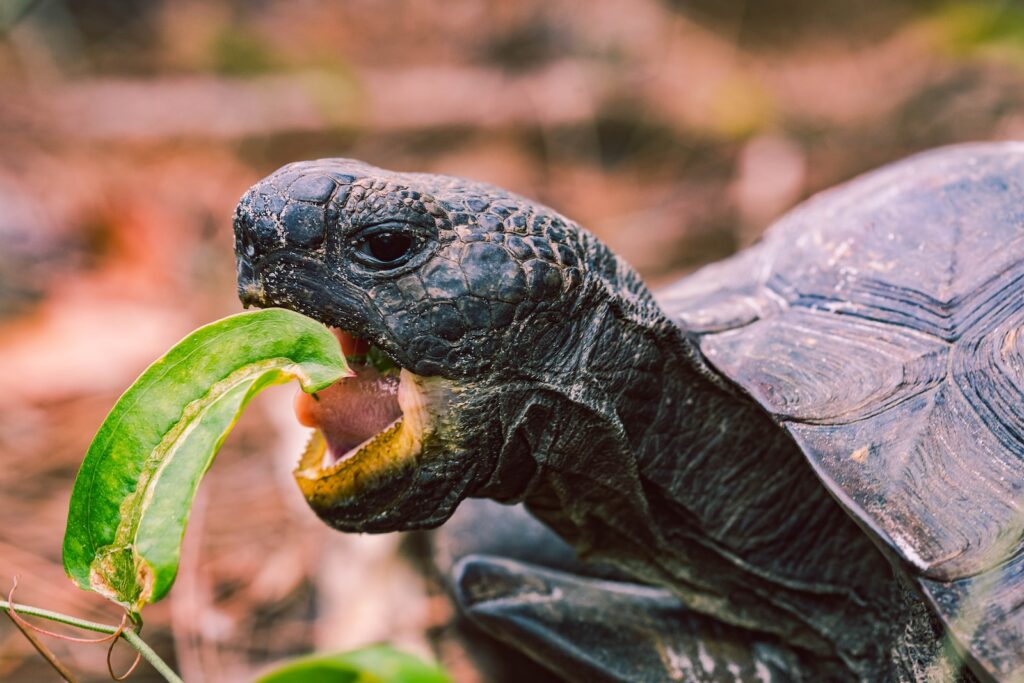
Importance of Researching
When researching the dietary needs of your pet tortoise, it is important to consult with a veterinarian who specializes in reptile care. Understanding what a tortoise can eat is essential for their overall health and well-being. In the wild, tortoises have a varied diet that includes both plants and animals. However, as pets, they are typically fed a plant-based diet.
Vegetables are an important part of a tortoise’s diet. They should be provided with a variety of leafy greens such as kale, dandelion greens, and collard greens. These vegetables are rich in nutrients and provide essential vitamins and minerals.
It is equally important to know what not to feed your tortoise. Certain foods can be toxic or harmful to them. Avoid feeding them fruits that are high in sugar such as grapes or citrus fruits. Additionally, avoid feeding them vegetables like onions or garlic, as these can be harmful to their digestive system.
While some fruits are safe for tortoises to eat in moderation, it is best to offer them sparingly due to their high sugar content. Suitable fruits include strawberries, melons (without seeds), and apples (without seeds).
Natural Diet in the Wild
To ensure your pet tortoise’s optimal health, it is important to understand their natural diet in the wild and provide them with similar options. Tortoises have specific dietary needs that should be met for their overall well-being. Here is a list of key points to consider when feeding your tortoise:
Tortoise Diet:
- Tortoises primarily eat plants and leaves.
- They may also consume insects, slugs, and carrion in the wild.
- It is best to stick to plant-based foods at home.
Safe Foods for Tortoises:
- Offer a variety of vegetables, such as dandelions, kale, turnip greens, peppers, broccoli, cauliflower.
- Fruits should be given sparingly as they are not well-digested by tortoises.
Best Tortoise Food:
- Ensure you know the specific dietary needs of your tortoise breed.
- Consult with a vet for advice on safe and suitable foods.
Can Tortoises Eat Grass from Yard?
- Yes! Fresh grass can be included in their diet but make sure it hasn’t been treated with chemicals or pesticides.
What Eats Tortoises?
- In the wild, tortoises have natural predators such as birds of prey and mammals like foxes or coyotes. When kept as pets indoors or in secure outdoor enclosures, they are protected from these threats.
Specific Tortoise Species
Now that you understand the natural diet of tortoises in the wild, let’s delve into the specific dietary needs of different tortoise species. Each species has its own preferences and requirements when it comes to their food.
For instance, Russian tortoises are known to graze on grasses, succulents, and stems in their natural habitat. When it comes to their captive diet, they can enjoy a variety of foods such as dandelions, clover, kale, turnip greens, peppers, broccoli, cauliflower, strawberries, and melon. However, it is important to note that while Russian tortoises can eat some leafy greens like kale and turnip greens in moderation as part of a balanced diet, too much of these vegetables can lead to health issues due to high oxalate content.
Other tortoise species may have different preferences when it comes to their food choices. Some tortoises may even consume meat occasionally if given the opportunity. However, it is generally recommended to stick to a primarily plant-based diet for most tortoise species.
To ensure you provide your tortoise with a safe and healthy diet tailored to its specific needs and preferences, consult with a veterinarian or do thorough research on the appropriate tortoise-safe foods for your particular species.
Avoiding Harmful Foods
Avoid feeding your tortoise harmful foods that could potentially jeopardize its health and well-being. Here are some important things to keep in mind when it comes to what your tortoise can eat:
- Can tortoises eat meat? While some tortoise species may occasionally consume small insects or carrion in the wild, it is generally not recommended to feed them meat as a regular part of their diet. Tortoises are primarily herbivores and thrive on a plant-based diet.
- Can Russian tortoises eat asparagus? Yes, Russian tortoises can eat asparagus in moderation. Asparagus can be a nutritious addition to their diet, providing vitamins and minerals.
- Can desert tortoises eat broccoli? Desert tortoises can eat broccoli, but it should be offered sparingly as an occasional treat. Broccoli contains oxalic acid, which can inhibit calcium absorption if consumed in large quantities.
- Can sulcata tortoises eat asparagus? Yes, sulcata tortoises can also enjoy asparagus as part of their diet. However, like with other vegetables, it should be given in moderation to maintain a balanced nutritional intake for your pet.
Remember to research the specific dietary needs of your particular species of tortoise and consult with a veterinarian for guidance on providing a healthy and appropriate diet for your pet.
Consulting a Vet
Consulting a vet is essential for ensuring that your tortoise receives proper care and nutrition. When it comes to feeding your tortoise, it’s important to provide a balanced diet that includes a variety of vegetables. Tortoises can eat a wide range of veggies, such as lettuce, greens, and other leafy greens. You can also offer them tortoise pellets specifically designed for their nutritional needs. When feeding your Russian tortoise, it’s important to know what foods are safe and suitable for them. Your vet can provide guidance on what should be included in their diet and how much to feed them. They will consider factors such as age, size, and activity level when determining the appropriate amount of food for your tortoise. It’s also important to have a regular feeding schedule and avoid overfeeding, as this can lead to health problems. Remember to always consult with a vet who specializes in reptile care to ensure that you are providing the best possible nutrition for your tortoise.
Importance of Checking
It’s crucial to always check before introducing new foods into your tortoise’s diet to ensure their safety and suitability. When it comes to what food do tortoises eat, it’s important to consider the specific dietary needs of your tortoise breed. Here are a few guidelines for checking and selecting the right foods:
- Consult a vet or do research on reliable sources like sulcata food charts or testudo tortoise food guides to determine what foods can be included in your tortoise’s diet.
- Check if the food is safe for your tortoise by ensuring that it is free from toxins or pesticides.
- Consider what greens can tortoises eat by offering a variety of leafy greens such as dandelion greens, collard greens, kale, and spinach.

Frequently Asked Questions
Can tortoises eat meat or insects?
Yes, tortoises can eat meat or insects, but it should only be given in small amounts and as an occasional treat. In the wild, some tortoise species do consume insects and carrion. However, their main diet consists of plants and leaves. Feeding them a balanced diet that includes a variety of safe plants is crucial for their overall health. Always consult with a vet to determine the specific dietary needs of your tortoise breed before introducing meat or insects into their diet.
What are the specific dietary needs of different tortoise species?
Different tortoise species have specific dietary needs based on their natural habitat. For example, Russian tortoises primarily graze on grasses and succulents in the wild. Their diet can be supplemented with foods like dandelions, clover, kale, turnip greens, peppers, broccoli, cauliflower, strawberries, and melon. Hermanns tortoises also have specific dietary requirements that include a combination of fresh vegetables and fruits. It’s important to research the specific needs of your tortoise species to provide them with a balanced and appropriate diet.
Are there any foods that tortoises should never be fed?
Yes, there are certain foods that tortoises should never be fed. Some fruits, such as citrus fruits and grapes, should be avoided as they can upset their digestive system. Additionally, iceberg lettuce and spinach should not be offered regularly as they have little nutritional value. Foods high in protein and phytic acid, like peas and beans, should also be avoided. It’s important to research safe and suitable foods for your specific tortoise species to ensure their health and well-being.
How important is it to research tortoise care before getting one as a pet?
Researching tortoise care before getting one as a pet is crucial. It’s like laying a solid foundation for the well-being of your future companion. By understanding their specific needs, you can provide a balanced diet and create a suitable habitat. This research ensures that you are fully prepared to meet their dietary requirements and provide proper care. It shows your commitment to giving them a happy and healthy life, which they deserve. So take the time to educate yourself and be an informed tortoise owner!
Can tortoises eat the same foods they would find in the wild?
Yes, tortoises can eat some of the same foods they would find in the wild. Different tortoise species have different dietary needs and preferences, so it’s important to research your specific tortoise breed’s natural diet. For example, Mediterranean tortoises mainly graze on shrubs and succulents, while jungle tortoises have a wider variety of fruits and plants in their diet. Providing a balanced diet that includes a variety of safe and suitable foods will help ensure your pet tortoise’s well-being.
What is a Good Tortoise Diet Conclusion
So there you have it, tortoise enthusiasts! Remember, when it comes to feeding your beloved shelled friend, variety is key. Just like us humans, they need a balanced diet to stay healthy and strong. But be cautious of certain foods that could be harmful to them. It’s always better to do thorough research and consult with a vet before introducing new foods into their diet. Think of your tortoise’s diet as the foundation for their well-being, like the sturdy shell that protects them. So make sure you give them the best nutrition possible for a long and happy life!
